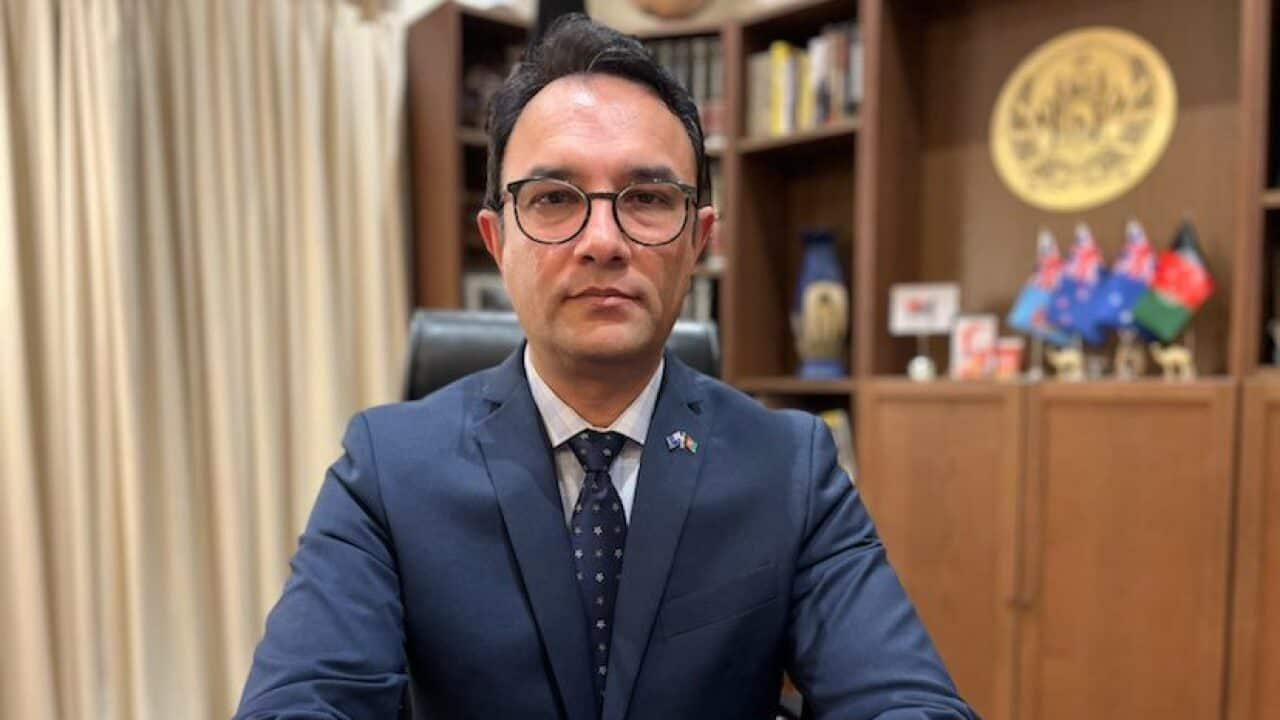Afghanistan’s Ambassador to Australia Wahidullah Waissi has raised serious doubts about the Taliban’s capacity to respond to his country's devastating earthquake as he appealed for the international community to play a major role in recovery efforts.
The representative of Afghanistan's former government – overthrown by the Taliban – has now spoken out for the first time since the fall of the country’s capital, Kabul.
The earthquake, which has killed more than 1,000 people, prompted Mr Waissi to set aside his previous resistance to speak publicly and address his country’s current plight.
He told SBS News it was “heart-wrenching” to see the disaster hit his country as he raised his concerns about the Taliban’s capacity to respond to the suffering caused by the crisis.
“I think that is the biggest question,” he said.
“After the fall of Afghanistan to Taliban, there was a big brain drain, including those expertise that were responsible for taking care of this kind of assistance.
“The whole system has collapsed so that is very difficult and that is why the number of casualties are increasing because people are under the rubble of mud and stones.
“They are still there and need urgent support.”
Since taking over as prime minister, Anthony Albanese has continued the former Morrison government's position, refusing to recognise the legitimacy of the Taliban.
READ MORE: Afghans in Australia call for ‘urgent relief', donations following devastating earthquake
Australia has also continued to recognise Mr Waissi - who was appointed almost a year ago before the Taliban’s takeover - in his role as a representative of the Afghan people.
Since then, his focus remained on providing consular support in response to the many challenges facing the people of Afghanistan.

Authorities say an earthquake has destroyed about 500 houses in different parts of Afghanistan's Spera district. Source: Getty / Anadolu Agency
In response to the Taliban's takeover last year, many countries imposed sanctions on Afghanistan's banking sector and cut billions of dollars in development aid.
But the support has continued, however, from international agencies such as the United Nations.
The ambassador in exile said he maintained faith in the capacity of aid groups to work on the ground without money going into the hand into the hands of the Taliban regime.
“The international community can provide a major role - they are already putting hands together in terms of humanitarian assistance for people of Afghanistan,” he said.
“Afghanistan has been aid-dependent for [a] very long [time].
"The expertise are there the experience of NGOS and local civil society communities they are still doing their job to channel funds to affected areas.”
He added that the Australian government had been “doing its best” in response to the humanitarian needs of Afghanistan.
In April this year, the Morrison government announced an additional $40 million in ongoing support for Afghanistan.
That brought its total commitment to $140 million for the period 2021-2024.

Afghan children stand near a house that was destroyed in an earthquake in the southwestern part of Khost Province. Source: AAP / AP
“We’re not representing the current regime - we’re representing the people of Afghanistan and they’re of course people to people is our major point of work,” he said.
Poor communications and a lack of proper roads have also hampered recovery efforts.
Asked if he intended to seek asylum in Australia, Mr Waissi said he wanted to continue to serve his people.
“This is something very much important as there is a need for serving the people we are continuing our services.”
The United Nations has warned nearly 20 million people in Afghanistan - almost half the population - are facing acute hunger.



